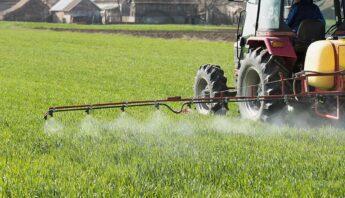We’ve been saying it for years: the rules governing genetically engineered (GE) crops, and how they get on the market, are broken. There are significant loopholes, insufficient transparency, and outdated practices that fail to account for today’s on-the-ground farming realities.
The White House agrees, at least in part. In a memorandum released July 2, the President called on the three agencies involved — U.S. Department of Agriculture (USDA), Environmental Protection Agency (EPA) and Food and Drug Administration (FDA) — to fully review and update GE regulations. It’s about time.
As stated in a White House blog, the goals of the review and ultimate change are:
…to ensure public confidence in the regulatory system and improve the transparency, predictability, coordination, and, ultimately, efficiency of the biotechnology regulatory system.
Transparency? Efficiency? That sounds good. But with Monsanto, Dow and the rest of the Big 6 pesticide/biotech corporations pushing for even less oversight of their products, we’ll need to keep speaking up to protect farmers, local economies and rural communities.
This process won’t move quickly, but it’s finally in motion.
Long overdue
Regulations for GE products haven’t been revised since the 1990s, when RoundUp Ready crops were first coming onto the market. And we’ve learned quite a bit since then about the unintended consequences and likely fallout from herbicide-resistant GE crops — from the creation of “superweeds” to cross pollination and contamination of neighboring fields to harmful pesticides threatening the health of those living and working nearby.
The agricultural landscape has significantly shifted, with farmers increasingly trapped on the pesticide treadmill.
In the past 20 years, the agricultural landscape has significantly shifted, with farmers increasingly trapped on the pesticide treadmill. And more GE crops, engineered to be used with increasingly hazardous herbicides, are waiting in the wings for agency approval.
Just last year, despite outcry from hundreds of thousands of farmers, scientists and communities across the country, USDA and EPA rubberstamped Dow’s 2,4-D-resistant corn seed — a decision that ignored the biggest problems that will accompany widespread planting, like a dramatic increase in 2,4-D use and exposure.
Changes ahead?
There are many more details to be fleshed out in the new plan. And USDA was the first agency to get the ball rolling, opening up a public comment period last month even before the President made his announcement.
According to the White House, the Coordinated Framework for the Regulation of Biotechnology is due for an update. Outlining the rules and roles of the three responsible agencies, the Framework was last amended in 1992 — and revising it would clarify the jurisdiction of USDA, EPA and FDA, which is sorely needed. Through a very siloed lens, each agency looks at a small piece of each GE seeds’ use, resulting in loopholes, outdated practices and an underestimated risk.
In addition to updating the Coordinated Framework, other expected actions include:
- Creating a long-term strategy, following public input, to guarantee that the biotechnology regulatory system is capable of assessing risks associated with future biotechnology products. This will include directing support for research and science to inform these regulations, creating user-friendly tools for public awareness, and conducting periodic scans for new biotechnology products; and
- Authorizing a third-party, independent analysis of the future landscape of biotechnology products that will identify new risks and frameworks for risk assessment to inform future policy making.
The regulatory review process is open to public input, and PAN will be staying engaged in this process, working to ensure the broken rules are actually fixed — not further weakened by industry interests.
Want to join us in taking a stand for farmers, local economies and communities? Stay tuned for opportunities to get engaged.







